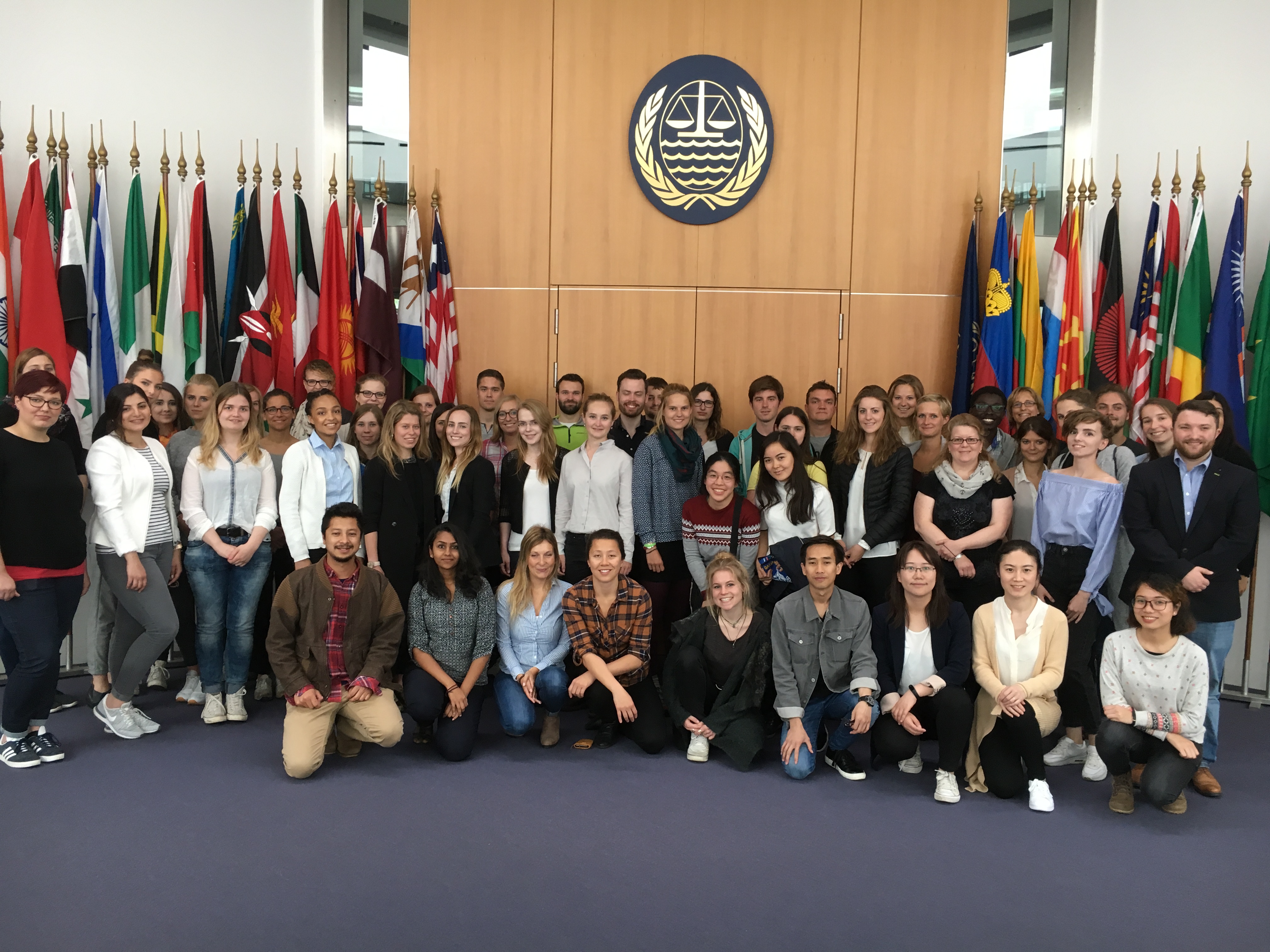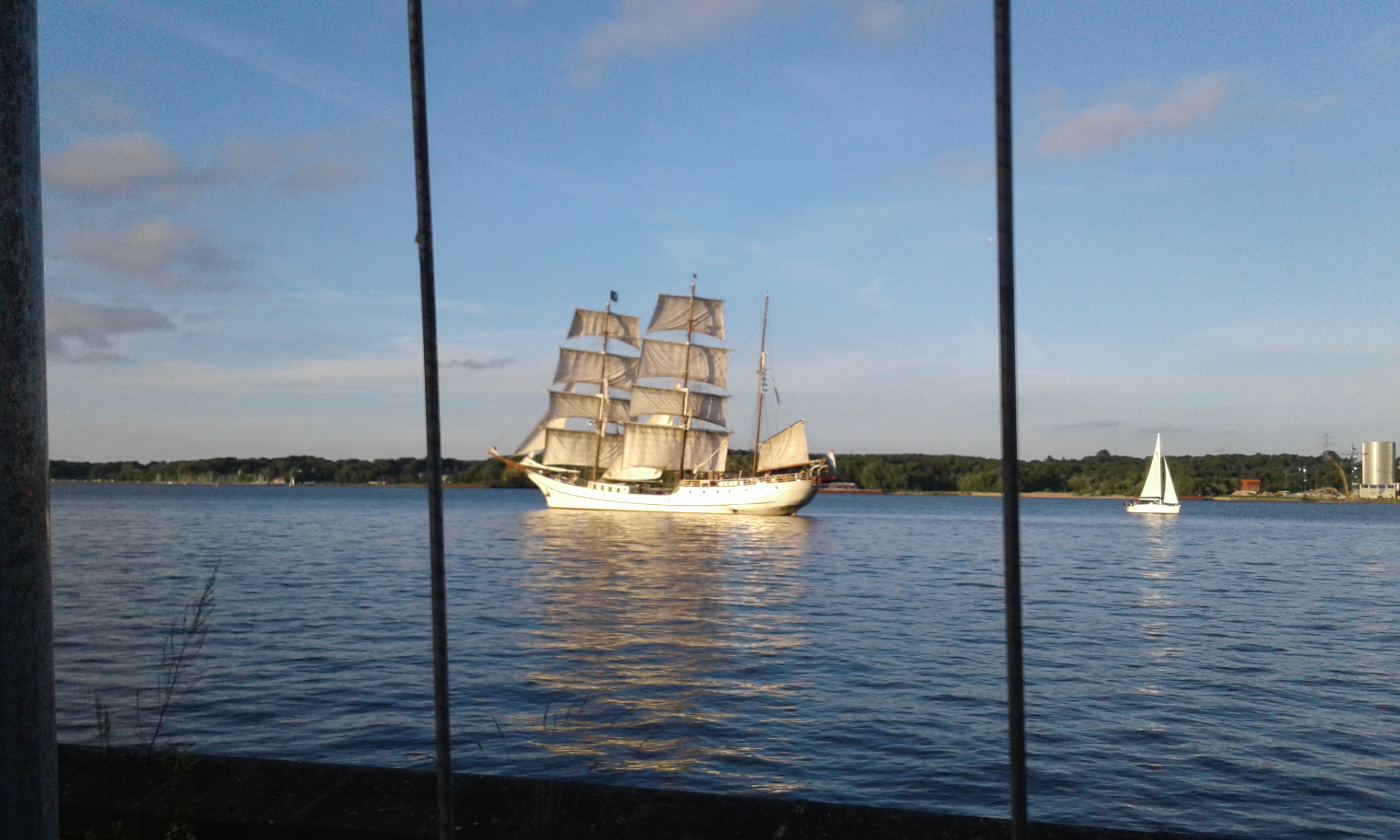Fish-WIKS News
» Go to news mainPhD Student's Research Exchange to Germany

Fish-WIKS' PhD Student Mirjam's research is also part of the Transatlantic Ocean System Science and Technology (TOSST) Graduate Research School. TOSST is complemented by a similar program at the University of Kiel in northern Germany, namely the Helmholtz Ocean System Science and Technology (HOSST) Graduate Research School. Both programs require their students to complete a research stay with their respective transatlantic co-supervisor. The objective of the German-Canadian research exchange is three-fold: it is an integral part of Mirjam’s TOSST fellowship, it allows for a closer cooperation with her German co-supervisor and it fosters the ties between the German HOSST and the Canadian TOSST program by providing mutual benefits to the collaborators as well as future cooperation options.
This extraordinary opportunity to experience the TOSST-HOSST partnership from the other side of the Atlantic brought Mirjam to the Walther Schücking Institute for International Law (WSI) at Kiel University where she collaborated with her German co-supervisor, Prof. Dr. Nele Matz-Lück, one of the co-directors of the WSI. In late spring Mirjam spent two months with Dr. Matz-Lück’s research group, followed by another month in the fall. Fluent in German, Mirjam was able to immerse herself fully in the academic and social life in Kiel. She attended some of Dr. Matz-Lück’s classes on the Law of the Sea and joined the class for a field trip to the International Tribunal for the Law of the Sea in Hamburg.

Ã˝
The topic of Mirjam’s research exchange was deep sea mining (DSM) in the South Pacific. The initial research project idea was eventually narrowed down to focus on evaluating the cultural sustainability of DSM in Melanesia. At first sight, this research does not have much to do with her thesis project about Inuit fisheries management in the Canadian Arctic, but in both cases cultural sustainability is crucial for protecting Indigenous knowledge, laws, resource use and management. Geographically, too, the South Pacific seems far away, but there are still connections to both Canada and Germany. While it is a Canadian mining consortium that is at the forefront of making DSM feasible by designing and producing the necessary machinery, the German government is heavily promoting experimental DSM. German NGO’s, on the other hand, are pushing for a ban on it.
Further, Mirjam discussed European Arctic policy and involvement with Dr. Matz-Lück in order to better compare her Canadian case study in the pan-Arctic context. She also had the chance to meet a post-doc in political sciences whose research at the interface of Indigenous rights, resource management and Indigenous involvement in the Arctic Council, nicely complements her own research on Inuit resource management in the territorial and national contexts.
Overall, Mirjam’s research exchange at Kiel University was demanding, yet very fruitful, particularly with regards to the knowledge gained and the connections made. She thanks TOSST, Dr. Nele Matz-Lück and the Jean Monnet European Union Centre of Excellence for facilitating this rewarding experience and is excited to continue the collaboration from afar.

Recent News
- Muiwatmnej Etuaptmumk Conference 2023 LiveStream
- Knowledge Pluralism in First Nations’ Salmon Management
- Learning Lodge on Mi’kmaw Livelihood Rights
- RoseAnne Archibald elected as national chief of Assembly of First Nations
- Mary Simon named as Canada’s first Indigenous governor general
- Mi'kmaw‚ÄëLed Conservation Webinar Series ‚Äë Thurs March 25 at 6 pm
- FishWIKS team members Lydia Ross and Lucia Fanning publish paper on informed management decision‚Äëmaking
- FishWIKS team member Nicole LaTulippe co‚Äëauthors paper on need to make way for Indigenous research leadership
